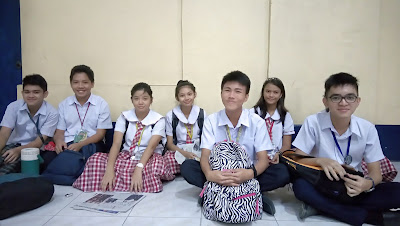I don’t allow my students to talk to each other when they
take tests. I don’t make quizzes intended for collaborative activities for them to
do brainstorming. I am usually strict on
test taking because that was the kind of training I had from my education. One
purpose of the tests is to assess what the students have learnt (Kelly, 2019). Aside
from the obvious techniques that the students do in cheating like looking at the
seatmate’s paper or preparing for cheat sheet, here are 10 ways to identify
cheaters in the classroom:
1. Check the score.
Some are unaware that there are teachers who are conscious
with the scores of their students. Usually they find it easy to copy other
answers verbatim which results to same scores.
2. Check the answers
It’s easy to tell cheaters in the enumeration type of tests.
When the students are asked to write the answers, there will be students who
will have exact answers and usually they are the one seated beside each other.
3. Corrections/Erasures
When students change their answers, it is usually because
they realized that the final answer they gave was the correct one. Sometimes
they realize that the others’ answers are correct especially when they don’t
know the correct answer and they feel that they rather rely on others’ answers
to secure points. When there are corrections on the paper, the teacher can
examine when the correction was made. Is it while taking the test or after the
test. When students make corrections after the test and when they find out the
correct answer, that’s violation.
4. Filling the paper
with dictated answers
Checking the papers through dictation of the correct answer can
also be a trick to find out cheaters. This only requires the teacher to be
alert on who were able to answer the questions on each item. Make students
seated in arrangement where you could all observe them while taking the test.
Usually students who couldn’t provide answers wouldn’t move their arms to fill
in the item. Mark those students who have blank items. Dictate the answers
during checking. You’ll be surprised to see that they have written answers. It
would be a little fun when the answers are misspelled. That only shows that
they don’t understand what they wrote.
5. Different
penmanship in the answer
Cheating collaboration happens especially when the students
have known each other for quite long and the culture of dependency was already
established. The teacher must find it expected that the students would hide and
protect each other’s wrongdoings. Though they are asked to exchange papers
during the checking and they are asked to sign on the checked paper, there will
still be some to conspire to fill in unanswered items with the correct answer.
6. Through Rechecking
Check the papers on your own first. Have another copy of
their papers. Don’t tell your students that you already checked them. You can
tediously take photos on each paper. Record their scores from your checking. Return
the papers to your students and ask them to have their papers checked. You can
simply ask them to check their own paper. The difference from your checking and
theirs would tell.
7. Checking the items
even when answers are wrong
This is worse. When there are students who don’t care for
the right answer and only concerned with the point, you might want to get the
attention of this student.
8. Changing the score
You might not see something wrong in the items but there is
an additional point on the score. When you are a teacher who just record
scores, you might record the wrong score.
9. Prepared answers
Some students would prepare combination of answers. Some
would prepare 2 papers and the paper with the higher score will be the thing to
submit. These kinds of students wouldn’t spend time in thinking but would be
busy preparing papers with different combinations. The teacher must be
observant enough to spot this kind of students.
10. “May I go out?”
The trick of asking to go out and bring cheat sheet or
mobile phone with them could also be the style of others. When they come back
they already have answers to put on their paper. You might check the paper of
the student who went out. When the student came back with the answers to the
blank items you can interview the student.
I think students who cheat are only concerned about their
grades and not for learning.
Finding out the cheaters in your class might bring mistrust
to your students. It might bring disappointment to your profession and anxiety
for the kind of society we have. Nevertheless, it would provide a sound
judgment on who deserves to be recognized for honors at the end of the course. Don’t
be surprised to find out that even your kindest student in the class would also
be caught with the habit of cheating.












